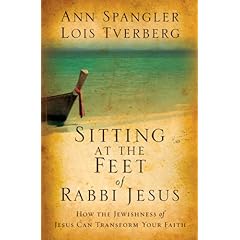
I somewhat vaguely remember the time when I was able to merge the words ‘Jesus’ and ‘Jewish’ together. Jesus was always depicted as a white guy with straight blond hair, blue eyes, neatly trimmed beard and a flowing white robe. But thanks to Philip Yancey’s “The Jesus I Never Knew”, it suddenly made sense that Jesus was indeed a Jew and being a Jew, lived in a Jewish setting and a Jewish way of thinking. That was my introduction into Jesus and his Jewish context. Given the amount of understanding I had then, I had a hard time stranding the thoughts of the book together. Not that Yancey was an awful writer, but I did not have enough introductionary knowledge to jump into the conversation.
But fast forward now, authors like N. T. Wright and Scot McKnight have been authors that had helped me immensely in sojourning the field of the first-century context of Jesus. But only after reading some short introductionary articles on the web by these authors and countless others was I able to understand some of the terms and views that were presented.
To be able to dive into a certain field of study it is important for any student to start with a book detailing introductions on that certain subject. I’m happy to state now that this book, “Sitting at the Feet of Rabbi Jesus” by Ann Spangler and Lois Tverberg is a godsend because it is a helpful book in the veins of an introduction to the Jewish background of Jesus.
The book is divided into 14 chapters and with helpful Appendices pages, notes and indexes. At 272 pages, I would say the book is about the right size for an introductionary book, not too thin and it’s not too thick either (although personally I prefer another 50 or more pages.)
The authors state that they have been “careful to place Jesus within his first-century context rather than of the later ages” and hope that the book would be of help to “pastors, students and laypeople who find their reading of the bible all the more fascinating and life transforming as they come to appreciate and understand the Jewish context that shape it”. I think the authors do exceptionally well in doing what they described without getting the reader entangled with details of dates as well as myriads of views on cultural background. Their approach is concise as well as accessible. For example in chapter one on the word anointing, particularly in the passage where Mary anoints Jesus with expensive perfume, the authors state that there is another side to understanding this than just the description that Mary was only doing it, un-be-knowingly, to prepare for Jesus’ burial (Matt 26:12). Anointing carries the meaning that Jesus was the anointed one, taking the context of how anointing in Jewish eyes and senses captured the moment. Passages in the OT also are brought into attention to build on the meaning. I don’t think readers will find it difficult to strand together as well as explain. They are simply concise and informative.
That is just one of the countless examples though. Moving on, an initial observation again toward the book is its presentation of the values and customs of the Jewish people which do more than just appease the appetite of the mind. The Jews valued community more base on what I read. In a chapter on haverim, which simply means a student having a study partner for male student and haverah for female student, we get the picture that Jews look at the process of studying differently. They preferred to study in community, together with a group and debates were part of their study nature. Such a different study culture compare to my Malaysian context, especially with debate taking primal role in studying.
I find myself appreciating Jewish liturgy and their formal prayer which some are read from scripture or passed down from tradition which was refreshing. I have also gained some understanding about how Jews viewed the law as we often call it not as a set of rules but a book that God gave out of his grace to show them how to live. I think there are some things in the book that might just shake the sock off our thinking and I hope would ultimately revise of deconstruct previous held positions and reconstruct better grounded views of scriptural understanding and faith. Another thing that made the book accessible was that it had these short concise frames on the sides to explain Jewish words and terms if readers were unfamiliar with them. This sure beats the constant flipping to the back of the book which explains the terms. This book has both the side bar meanings which are concise as well as an appendix page for meaning of the words in a more detailed manner.
Overall, I was not disappointed by the book at all. I was at first skeptical when I first became aware of the book, of whether it would be able to attain to a standard that I had for a book on the subject of dating Jesus in his first-century Jewish context. I think that is the danger if we just stick to a selected group of writes in whom we trust regarding their scholarship. But I have to say that the information in this book has been very helpful, and that is to say the least. I would easily recommend the book to anyone having no background on the subject. But I would not just say this book is just for beginners, it’s for anyone curious enough to dive into the study of Jesus’ Jewish context. You will be richly bless by Ann and Lois’ insights. The book might renew also your desire in “sitting at the feet of rabbi Jesus”.
The same Review is also on amazon. See here.
And starting next week, I will be blogging my reflections and thoughts on each chapter of the book.





